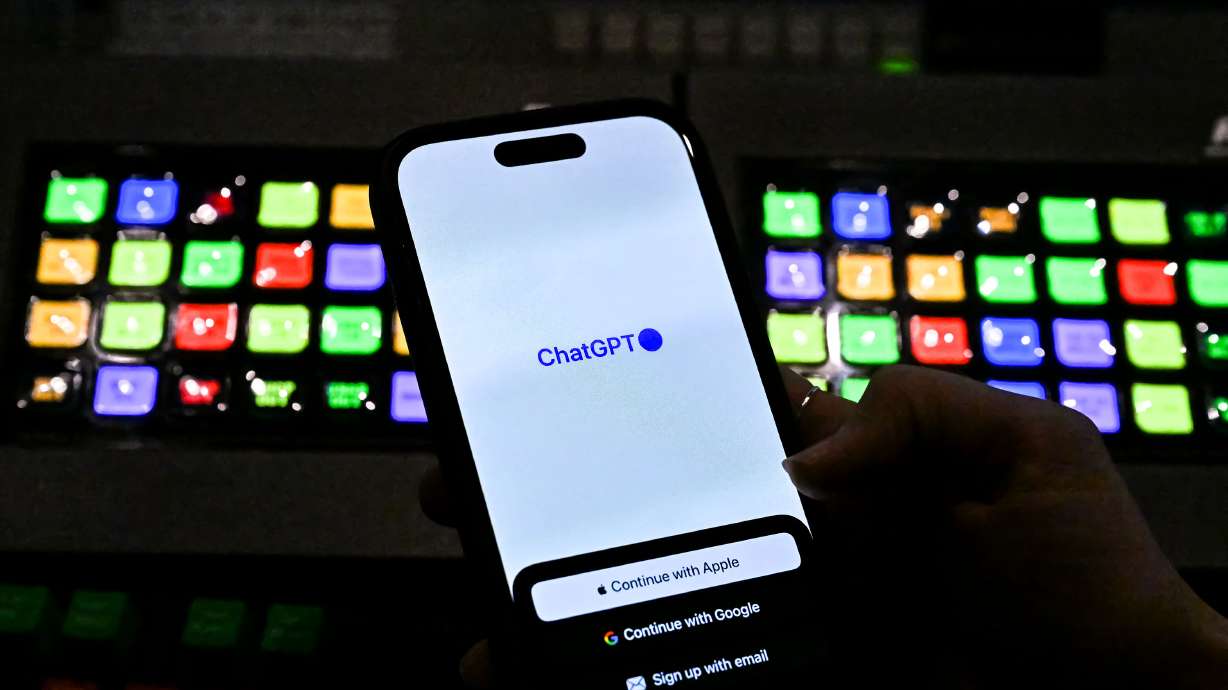SALT LAKE CITY — Continuing to lean into artificial intelligence rather than fight against it, the University of Utah last week launched OpenAI’s ChatGPT Edu — a version of the AI tool specifically designed for higher education and securely deployed for university use — across its campus community.
Every U. student, faculty and staff member can now request access to the tool via the U.’s IT Service Catalog, and they’ll receive an email with login instructions.
“We’ve been steadily building a foundation for responsible AI across campus, and ChatGPT Edu represents a major leap forward,” Manish Parashar, chief AI officer at the U., said. “The U. is at the forefront of reimagining how we teach, learn and research in the age of generative AI, and ChatGPT Edu will help us maintain an edge.
“We’re excited for our community to use this tool in a way that’s secure, optimized for academic work and aligned with our values.”
Designed for higher education, ChatGPT Edu doesn’t use university data to train the tool, and universitywide security measures make it safer to use than personal accounts.
Here’s what’s included through ChatGPT Edu:
- The latest OpenAI models, advanced data analysis, search and multimodal capabilities.
- Canvas and custom GPTs.
- AI image generation.
- A still-to-come process for U. users to buy credits to access ChatGPT’s advanced features.
Parashar said he sees the rollout impacting many aspects of what students, staff and faculty do at the U.
“I think people will be very creative in how they use it in whatever they do. The idea here is to help them amplify (and) accelerate what they do. Whether they are students using it to aid their educational processes, professors using it to help them teach, administrators using it to be able to automate a lot of the processes that they have and their workflows, (or) researchers using it to do research to be able to complement other tools that they use in exploring literature or doing things like that,” Parashar said.
Parashar also doesn’t see AI as something that could — or should — replicate the work done by professors and students.
For educators, Parashar said AI and ChatGPT can be used as a complement to their teaching methods.
But what about concerns around academic dishonesty?
“On the student side, we constantly emphasize that this is, again, this is not a replacement, a shortcut to do your work. It’s not about cheating, it’s not about plagiarism, right? You are responsible for your work. We expect that you go into a workplace or an environment in the world where AI is going to be part of it, and you will differentiate yourself and be able to use this with other tools that you have access to most effectively do better in whatever role you have,” Parashar said.
The latest announcement follows the university’s October 2023 launch of the $100 million Responsible AI Initiative, digging into ways AI can be used responsibly to tackle societal issues and the establishment of the U.’s AI Office earlier this year.
“How do we leverage this technology most effectively to help us better accomplish the university’s mission: innovation and research, education and training of the next generation and societal impact?” Parashar asked. “Part of that is making sure that we are we have access to the latest technology, and this is one of those, right? This is just another step in moving us in that direction.”
The U. will also be hosting training resources for the technology, which can be found here.
The Key Takeaways for this article were generated with the assistance of large language models and reviewed by our editorial team. The article, itself, is solely human-written.
